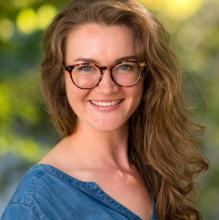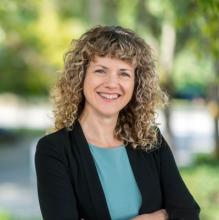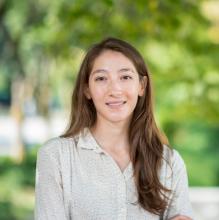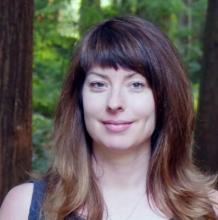We face myriad social and environmental crises, pressing issues of justice, climate change, biodiversity loss, public health crises, crises of governance, and more. Being a public scholar, to me, means refusing to be a bystander in the face of these crises. It means using my curiosity to drive real changes beyond my own self-betterment.
Research Description
Cities are at the frontlines of the ecological crisis, as many are biodiversity hotspots once rich in species diversity, now facing major losses and extinctions driven by land use change. At the same time, urban residents rely on nature to support our emotional, physical and spiritual wellbeing. Recognizing this, city governments increasingly strive to restore and protect biodiversity in the city through policy and plans, but planners themselves are rarely ecologists and they must also plan for many competing priorities. Cities are home to many beings with many needs, interacting in complex and changeable ways. As such, local governments hoping to enrich urban biodiversity must consider a wide range of scientific knowledge about many species and habitats, but must also integrate diverse experiences and ways of knowing beyond science to reflect the diversity of urban populations. This project is a collaborative effort to braid multiple ways of knowing and types of expertise into urban biodiversity planning for the city of Vancouver. We employ an adapted expert elicitation workshop approach and interviews to prompt diverse participants about their ecological knowledge and values, and will use this co-created knowledge to generate visualisations of a future, biodiverse urban Vancouver and the policy steps that we can take to get there. I am working together with my colleagues Dana Johnson and Dan Forrest on this interdisciplinary PhD project, a first of its kind for the Public Scholars Initiative.
What does being a Public Scholar mean to you?
We face myriad social and environmental crises, pressing issues of justice, climate change, biodiversity loss, public health crises, crises of governance, and more. Being a public scholar, to me, means refusing to be a bystander in the face of these crises. It means using my curiosity to drive real changes beyond my own self-betterment. I have the luxury and great privilege to spend ten or more years of post-secondary education thinking deeply about these complex challenges, and being a Public Scholar, to me, means recognizing that this privilege comes with responsibility and accountability to the planet and to communities I learn from and work with.
In what ways do you think the PhD experience can be re-imagined with the Public Scholars Initiative?
One of the things that excites me most about the Public Scholars Initiative is its potential to transform the PhD away from individualistic study and toward community-grounded and collaborative work. No person is an island, and no idea is entirely mine - I am the product of my upbringing, the ecosystems I played in as a child, the iconic events that shaped my generation. So, too, are “my” papers and theses the products of conversations held with my participants, my labmates, my supervisor, my colleagues and more. We create knowledge together, but for a long time, the PhD process has been individually focused - all about your ability to solve complex problems, to become an expert knowledge holder, to work independently. A PhD surely does these things for a person, but I think it should also teach you to be a better community member, communicator, ally, and colleague to the people you meet along the way, and initiatives like Public Scholars help to centre attention on these important goals, too.
How do you envision connecting your PhD work with broader career possibilities?
Maybe owing to my roots in community-based research, I have always felt most fulfilled with one foot in the academy and the other in practice. I love bringing the robust, slow, thoughtful, methodical knowledge produced in academia together with the experiential, pragmatic, applicable and salient knowledge produced in practice. I love serving as a conduit between these worlds, connecting people who hold different positionalities and ways of knowing with one another. The confluence of these worlds is, I think, where real change can flourish, so whether I wind up employed in an academic or applied workplace, I want to be a coordinator and facilitator of these enriching relationships. The Public Scholars program helps students build the skills and competencies needed to fulfil a role like that. Through training and peer interactions we learn about communicating effectively to diverse audiences, and about how to share academic research in applied spheres where it can make a difference.
How does your research engage with the larger community and social partners?
First, I’m grateful and fortunate to have two brilliant collaborators with me on this project - Dana Johnson and Dan Forrest. Together we comprise a research team with diverse training ranging urban planning, to ecology, to environmental psychology and more. Because we each approach this project with different lenses and perspectives, we can see more sides of the problem and more possible solutions. Importantly, it also means we can reach a wider set of academic and practice-oriented communities since we each possess competencies, understanding and language to share our co-produced knowledge back to these disciplines. We are working together with the City of Vancouver and the Vancouver Board of Parks and Recreation to envision this project. We have had multiple meetings with staff at these organisations to understand current policy goals and motives for this research project, and each of us are even spending time embedded and working for these organisations. These mutually-beneficial placements allow us to gain in-depth, experiential and informal ethnographic understandings of how urban governance works, and we provide our partners with thorough, deep-dive information on topics pertinent to their needs and practice. Lastly, we plan to engage multiple and diverse knowledge-holders in workshops and interviews about urban biodiversity. These broad “experts” include researchers, local and traditional knowledge holders, people with lived experience and varied formal education, and people with cultural values and knowledge about urban nature. In short, through our research, we are co-producing knowledge together with these diverse city residents, connecting them to City governance processes and sharing our opportunity to shape practice with them.
Why did you decide to pursue a graduate degree?
My undergraduate education equipped me with a strong understanding of the complex systems of exploitation that shape our world. It also left me feeling helpless, as I felt I had few concrete tools or skills to make a difference. This led me to pursue a Master’s degree in Planning, motivated by a desire to grow my technical and practical skills, to learn how to literally build sustainability from the ground up. As mentioned, I am happiest when straddling the line between research and practice, so I continue to work part-time as an environmental planner while pursuing my PhD. Through practice, I’ve been able to see the subtle ways that scholarship influences social and professional discourses. My doctoral studies are motivated by a desire to expand the boundaries of practice and advance social change, and my personal theory of change is that such progress happens when epistemic worlds collide.
Why did you choose to come to British Columbia and study at UBC?
It’s no secret that grad school can be a stressful experience and, although I loved my community in Toronto, I found myself increasingly agitated in the concrete jungle. Between personal challenges and the general emotional rollercoaster of grad school, I was burnt out and near my breaking point when I finally found Toronto’s hidden network of wild-feeling ravine parks. In some of my lowest moments, the wilds within the city held me up, and I committed to finding a way to return the favour. The Institute for Resources, Environment and Sustainability (IRES), and my supervisor Kai in particular, seemed like the perfect scholarly home for me to grow my knowledge of urban ecology. Further, the ideas of “relational environmental values” emerging from IRES resonated with my experience in the ravines and piqued my curiosity. Beyond that, Vancouver is a beautiful city with a reputation for sustainability, and practically, career prospects for myself and my partner are stronger here than anywhere else in Canada. To reflect back, it’s easy to make the decision sound considered and intentional. In reality, it was simply that my heart, my curiosity and my goals pulled me to this place.







